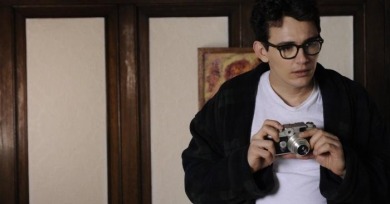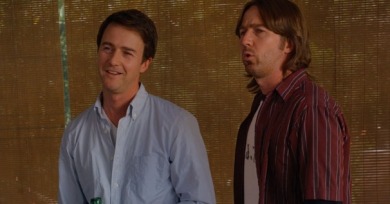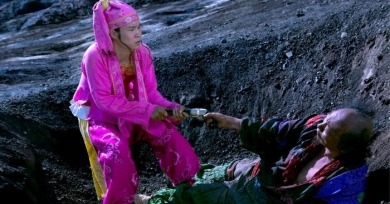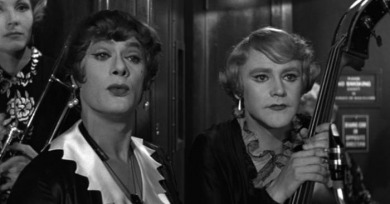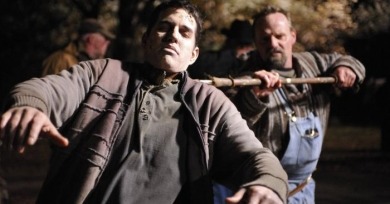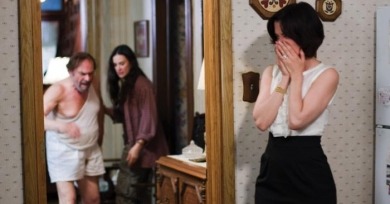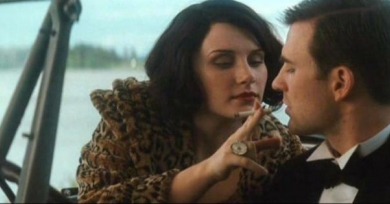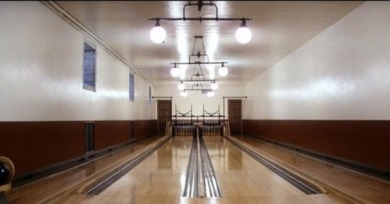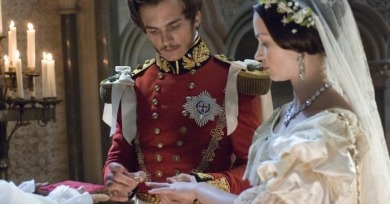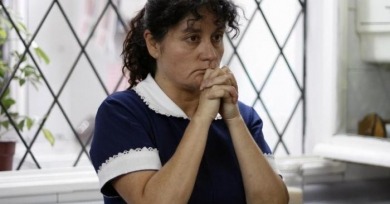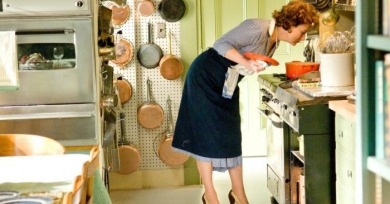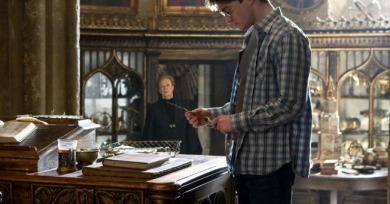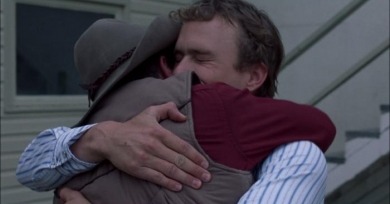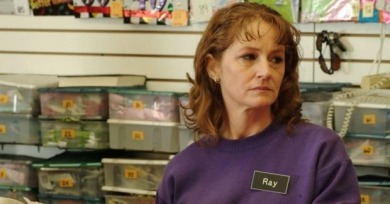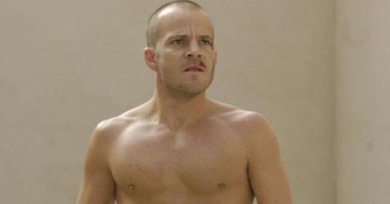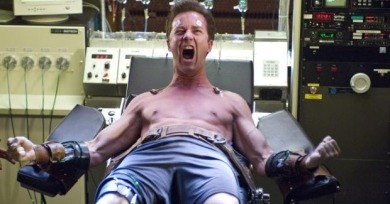Matt Connolly
If Howl’s bids for cultural relevancy fall short, its attempts to visually “poeticize” Ginsberg’s words via phantasmagoric animated sequences carry a similarly unfortunate whiff of undercooked ambition.
There’s an unexpectedly graceful scene midway through when Brady discusses his concept of God: akin to flawlessly parallel lines, a concept of perfection that human beings can conceive of while simultaneously knowing they will never experience it within the corporeal world.
A Woman, a Gun and a Noodle Shop manages the headache-inducing feat of both amplifying the Coen Brothers’ worst directorial tendencies and mixing them with Zhang Yimou at his most bombastically hollow.
On paper, it’s a non sequitur, a plot quirk meant to add a moment of giggly suspense to the film’s masquerade . . . To view it, however, is to witness a comic epiphany.
So much allegorical baggage has been heaped upon George A. Romero’s army of walking corpses over the last four decades, it’s little wonder their decaying legs haven’t collapsed under the weight.
With the possible exception of the post-Tarantino crime thriller, has any genre been as good to American independent film over the past 20 years as the family dramedy?
The one-sided would-be romance complicated by class distinctions is nothing extraordinary in Williams work, and The Loss of a Teardrop Diamond proves a particularly tiresome retread.
The blustery banalities and sweeping assertions of the conventional historical epic give way here to the ominous, the ambivalent, and the particular.
The pleasures of The Young Victoria are to be found in the aesthetic, rather than the theoretical, realm. Martin Scorsese acts as one of the film’s three producers, and it’s clear that Vallée has been influenced by The Age of Innocence’s methods of livening up the costume drama.
Sebastián Silva’s The Maid begins as a wry look at the fault lines between domestic familiarity and class disparity and gradually morphs into a kind of blackly comic quasi-monster movie, before segueing into an empathetic, restrained tale of personal growth.
If Ephron’s screenplay—adapted from Powell’s book Julie & Julia and Child’s My Life in France, which she cowrote with Alex Prud’homme—possesses an almost brazenly low amount of dramatic conflict, it also isn’t larded with prebaked career-or-husband contrivances found in so many female-centric Hollywood films.
Among contemporary action-fantasy franchises, the Harry Potter films are unique for the multiple directorial voices behind them.
The film’s characters never leave the Parisian environment into which they were born, shifting narrative tension away from cross-cultural disconnection and toward interpersonal disharmony based upon shared familial history.
The trouble with Quiet Chaos is that there’s too much quiet and not enough chaos. The emotional turmoil spoken about by the film’s characters rarely punctures its tranquil, sleepy surface.
You can only watch so many scenes of fiery young radicals holding up signs and yelling out protest songs before they all start to feel like the same damn march.
Amazing Truth is a quasifictional film that employs traditional documentary technique to tell the story of Raquela Rios, a Filipino trans woman who dreams of leaving her limited existence as a part-time streetwalker in Cebu City and starting a new life in Paris.
Characters that cling, with ever-whitening knuckles, to the lower rungs of the socioeconomic ladder are nothing new within the realm of American independent cinema, yet Hunt’s triumph here lies in her presentation of the American underclass milieu as a viable cinematic universe without succumbing to pious fetishization or thinly veiled distaste.
The past looms forebodingly throughout Boy A, threatening to capsize its protagonist’s fragile vessel of a life. It’s a lovely surprise, then, that the grace notes found within this artful character study have their roots in the pleasures and perils of the here-and-now.
The film eventually shifts away from these subtler moments and focuses on the fierce brawls between convicts, a far more flagrant and shocking confluence of institutional power abuse and inmate rage.
Almost all of the recent superhero franchises have been placed on the shoulders of actors known more for flexing acting chops than gym-sculpted physiques, and Norton’s history of playing loners, losers, and boy-next-door sociopaths places him in the off-casting pantheon.
